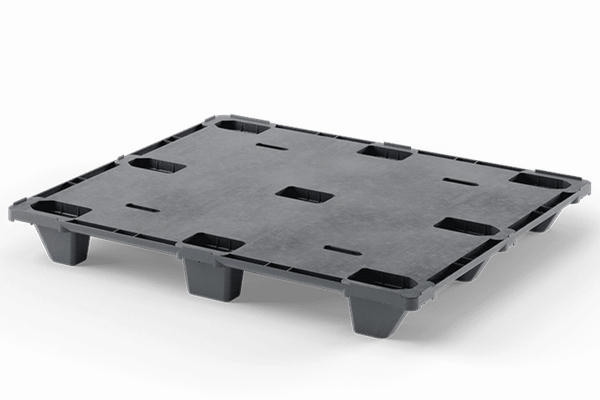The base for loading, storing, and shipping products remains the classic wooden pallet. The invention of the plastic pallet, however, has made it possible to ship the same items with less of an environmental impact. A plastic pallet is a high pressure injection molded structure that makes it easier to transfer items from the manufacturing plant to their destination.
Furthermore, it is asserted that plastic pallets are stronger and more weatherproof, but this is only partially true, which we’ll examine when we discuss the disadvantages. Utilizing plastic also has the advantage that it can be recycled, albeit under specific conditions.
Table of Contents
Features
Plastic-based pallets typically:
- The ISPM’s 15 prohibitions are no longer in effect.
- Lightweight
- helpful to the environment
- Recognized for its small size (some designs)
- tremendously strong and resilient
- tidy and simple to maintain
- easy to manage
- an excellent marketing tool
- measurement accuracy
- generally resilient to climate and environmental factors
- highly regarded for its appealing appearance and style
- Easy to handle with a forklift and easy to access
- available in a wide range of design possibilities (simple & complex)
What components make up plastic pallets?
For the creation of plastic pallets, either recycled or virgin plastic is employed. We fully accept responsibility for recycling the plastic pallets and boxes we offer since we are concerned about how we affect the environment.96% of our plastic pallets are made using 100% recycled plastic from commercial and residential sources. The details of our responsibility policy are provided here.
Plastic pallets are produced using high- or medium-density polypropylene (PP) or polyethylene (PE). The intended application will determine the specifications. While PP has enhanced stiffness even at higher temperatures and has outstanding performance in racking, PE has good shock absorbing capability even at very low temperatures.
Virgin materials (rather than recycled ones) are advised if your pallets will be in direct contact with food or if exceptional performance is necessary. Additionally, they have better aesthetic qualities. However, repurposed materials provide a more cost-effective and sustainable option.
Use of plastic pallets is advised:
- For shippers who want to ship abroad but don’t want to worry about the ISPM 15 or any delays brought on by quarantines, plastic pallet shipping pallets are a good option.
- Manufacturers which operate in a closed loop and reuse their own pallets can save transportation costs by using reusable plastic pallets.
- Reusable plastic pallets may also be a cost-effective alternative to pricey shipping methods like air freight due to their reduced weight.
- Plastic pallets are a wonderful choice for transporting consumables like food because they are simple to clean and sanitize.
- Verify which fire retardants were utilized in the manufacture of the plastic shipping pallets if you decide to use them.
Conclusion
You can see that plastic pallets have many more benefits than wood pallets. There are plastic pallets available that are ideal for your needs, no matter what method of product handling your company uses.
Businesses in the supply chain must take advantage of these benefits of plastic pallets if they want to save operating costs.










